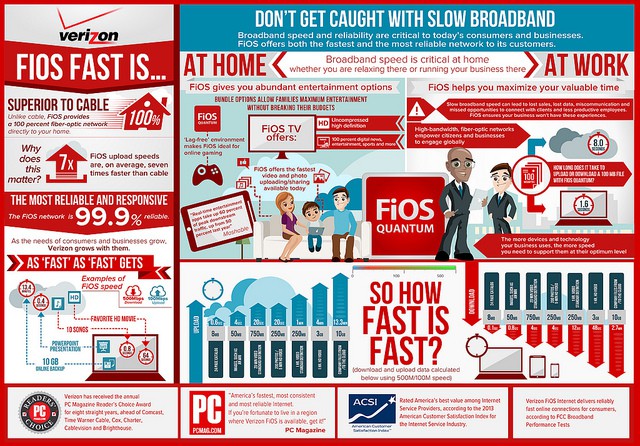 Salisbury’s community-owned fiber network has tripled its subscriber base in three years, signing up its 3,000th customer in the community of 33,000 and is already turning a profit.
Salisbury’s community-owned fiber network has tripled its subscriber base in three years, signing up its 3,000th customer in the community of 33,000 and is already turning a profit.
Fibrant, despite facing intense opposition from corporate-backed, conservative special interest groups with financial ties to its competitors and a state law passed at the behest of Time Warner Cable that limits its future growth opportunities, has proven very successful delivering improved Internet access to a community that received the back of Time Warner’s hand when it requested service upgrades.
Salisbury invested $33 million to install more than 250 miles of fiber in and around the community and began hooking up customers to its all-fiber network in late 2010. By the following summer, 1,200 customers signed up. Today, Fibrant serves more than 3,000 homes in the community.
WCNC-TV in Charlotte reports Fibrant is likely to break even this year after losing $4.1 million the year before — a loss Fibrant attributes to normal start-up costs faced by almost every new business.
Dale Gibson has been thrilled to be a Fibrant customer since the beginning and is even happier now that Fibrant offers gigabit speeds.
“Generally, when an Internet service provider gives a speed, it represents bandwidth, or a theoretical ‘best effort’ speed, not the ‘throughput,’ or actual speed,” Gibson told the Salisbury Post. “My speed tests are consistently above 900Mbps.”
In 2013, Fibrant raised the speed of its entry-level broadband package to 20/20Mbps for no extra charge. In the coming week, Fibrant’s basic broadband customers will be getting another free upgrade to 50/50Mbps.
Customers who want even faster speeds are also getting them for no extra charge:
- 30/30Mbps customers will see their speed raised to 75/75Mbps;
- 50/50Mbps customers get a free speed increase to 100/100Mbps;
- 100/100Mbps customers get the best upgrade of all: 1,000/1,000Mbps service at no extra cost.
Fibrant’s competitions cannot come close. AT&T U-verse still tops out at around 24Mbps in this part of North Carolina and caps its customers to 250GB of usage a month. Time Warner Cable’s best speed remains 50/5Mbps at a price higher than what Fibrant charges for 100/100Mbps.

Rep. Marsha Blackburn (R-Tennessee, but mostly AT&T and Comcast)
Fibrant has also improved its video packages, with new features like a whole house DVR, more channels, and more HD. Customers who don’t want networks shoveled at them can buy a basic cable TV package from Fibrant for $37 a month. Those who want more can upgrade to several different packages offering a maximum of over 450 TV channels and 50 music channels.
Customers in nearby communities who want the kind of competition Fibrant delivers will have to wait a long time to get it. Time Warner Cable, with the support of the Republican state legislature, successfully introduced and eventually passed the cable company-drafted measure to essentially ban community broadband in the state. FCC chairman Thomas Wheeler promised to consider eliminating these state corporate protectionism laws, provoking a hostile response in the Republican-dominated House of Representatives.
Rep. Marsha Blackburn, a Tennessee Republican with heavy backing from telecommunications giants AT&T and Comcast, introduced a measure for the benefit of large phone and cable companies that would override any effort by the FCC to increase competition by eliminating anti-competitive restrictions on public broadband.
“Blackburn’s positions line up very well with the cable and telephone companies that give a lot of money to her campaigns,” said Christopher Mitchell from the Institute for Local Self-Reliance. “In this case, Blackburn is doing what it takes to benefit the cable and telephone companies rather than the United States, which needs more choices, faster speeds, and lower prices. The argument that Blackburn puts forth [for passage of her measure] is not coherent. It’s just politics.”
Republicans in the House responded anyway, passing her measure 223-200. Just two Democrats voted in favor. The bill is not expected to pass the Senate and would almost certainly face a presidential veto.
New York Democrat Jose Serrano relished the ideological irony of House Republicans forced to twist their positions to accommodate AT&T.
“Whatever happened to localism or local control?,” asked Serrano. “This amendment means the federal government will tell every local citizen, mayor, and county council member that they may not act in their own best interests. Any such amendment is an attack on the rights of individual citizens speaking through their local leaders to determine if their broadband needs are being met.”
As community-owned providers in North Carolina found out, Big Telecom money often speaks louder than ideological consistency.


 Subscribe
Subscribe AT&T and Camden Property Trust have announced an agreement to offer broadband, television, and phone services over fiber to the premises technology beginning this fall, serving new high-end apartment homes owned by the developer in Atlanta, Austin, and Orlando.
AT&T and Camden Property Trust have announced an agreement to offer broadband, television, and phone services over fiber to the premises technology beginning this fall, serving new high-end apartment homes owned by the developer in Atlanta, Austin, and Orlando.
 Bulk Contracts: An AT&T Connected Communities bulk agreement offers greater earning potential. With a single, monthly recurring bulk bill for all contracted units, developers and HOAs get below-retail pricing, increased savings on equipment costs, and other rewarding financial incentives. In most cases, building owners include AT&T services either as part of the monthly rent or billed as a mandatory services surcharge. A resident can still sign up for satellite or cable television, but has zero incentive to do so because they would be effectively paying for service twice.
Bulk Contracts: An AT&T Connected Communities bulk agreement offers greater earning potential. With a single, monthly recurring bulk bill for all contracted units, developers and HOAs get below-retail pricing, increased savings on equipment costs, and other rewarding financial incentives. In most cases, building owners include AT&T services either as part of the monthly rent or billed as a mandatory services surcharge. A resident can still sign up for satellite or cable television, but has zero incentive to do so because they would be effectively paying for service twice.





